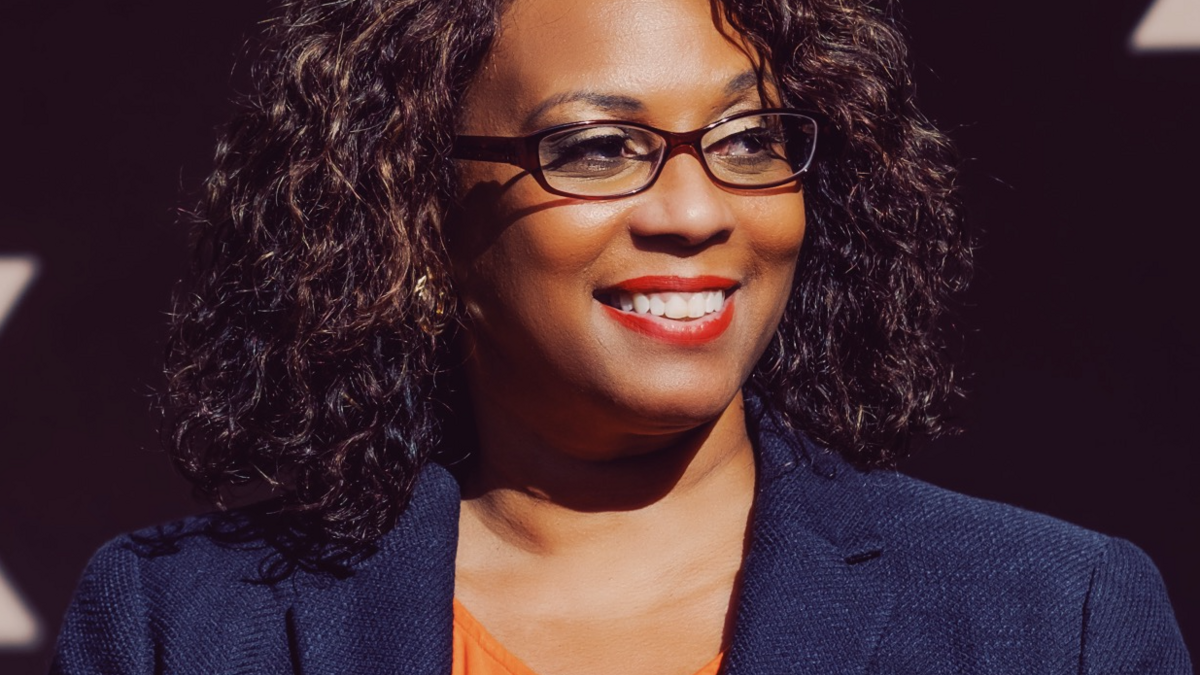Kimberly Scott has been named to a new role focused on increasing diversity, equity and inclusion opportunities in philanthropy, and expanding faculty involvement in philanthropy.
The founding executive director of Arizona State University’s Center for Gender Equity in Science and Technology and a professor in the School of Social Transformation, Scott was named the inaugural senior fellow at the ASU Foundation for A New American University.
“I’m honored to assume this inaugural position. Not only do I want to learn more about philanthropy, but I want to be more participatory after being a recipient,” Scott said. “Let me carry forward what I know as a grantee, as a tiny grantor, as faculty and as a program manager. Being in this role is a beautiful launching pad toward that goal.”
The ASU Foundation is the nonprofit fundraising arm of Arizona State University that raises and invests private contributions for ASU programs, students and faculty. It continually works to strengthen ties with the donor community.
“This is a unique opportunity for the ASU Foundation to gain a better understanding of faculty’s philanthropic needs and a deeper understanding of (diversity, equity and inclusion) from Kimberly’s expertise,” said Suzanne Rinker, vice president of enterprise development for the ASU Foundation. “This fellowship position is unique and provides the opportunity for ASU and the ASU Foundation to set the standard for others.”
Scott has not only received external funding for her work, but also researched funding patterns from government agencies and private foundations.
“I’ve learned a lot about how to get funding and how to sustain it, how to develop relationships with program officers, manage teams, implement and research programs in a way that is valued by the university,” she said.
Scott’s priorities during the fellowship are to conduct a landscape analysis of the ASU Foundation, to make sure her fellowship work during 2022 is sustainable for other faculty and to bring an equity framework to everything the foundation does.
“If we look at who gives money, African American women do give money, maybe not at the large amounts recognized, but we do give regularly,” Scott said. “How do we capitalize on groups that have a history of giving? I’m really excited that the foundation is not just tethered to dollars. I’m excited to see what is potentially viable.”
Additionally, Scott wants to see additional people of color in foundation leadership positions. According to data from the Council on Foundations, 10.3% of chief executive officers and chief giving officers were people of color.
“My moonshot is to develop a national fellowship program for faculty,” Scott said. “I want to meet with leaders of color and other marginalized communities to see what it should look like and ask, ‘What do you wish you had known?’”
Scott said this fellowship is the first step in achieving that goal.
More University news

ASU PD, international students help keep campus safe through revived program
With four campuses spread across metro Phoenix and an in-person student population exceeding 78,000, the Arizona State University…

ASU 1 of 21 R1 universities recognized in new Carnegie classification for student access and earnings
It is a headline that could have been missed in the blur of daily news about American higher education: The Carnegie Foundation…

The power of purpose: ASU scholarships emphasize service to community
It was the 1970s.A young Jim Armstrong was what he calls a “hippie.”Like many hippies of his generation, he decided to hit the…


